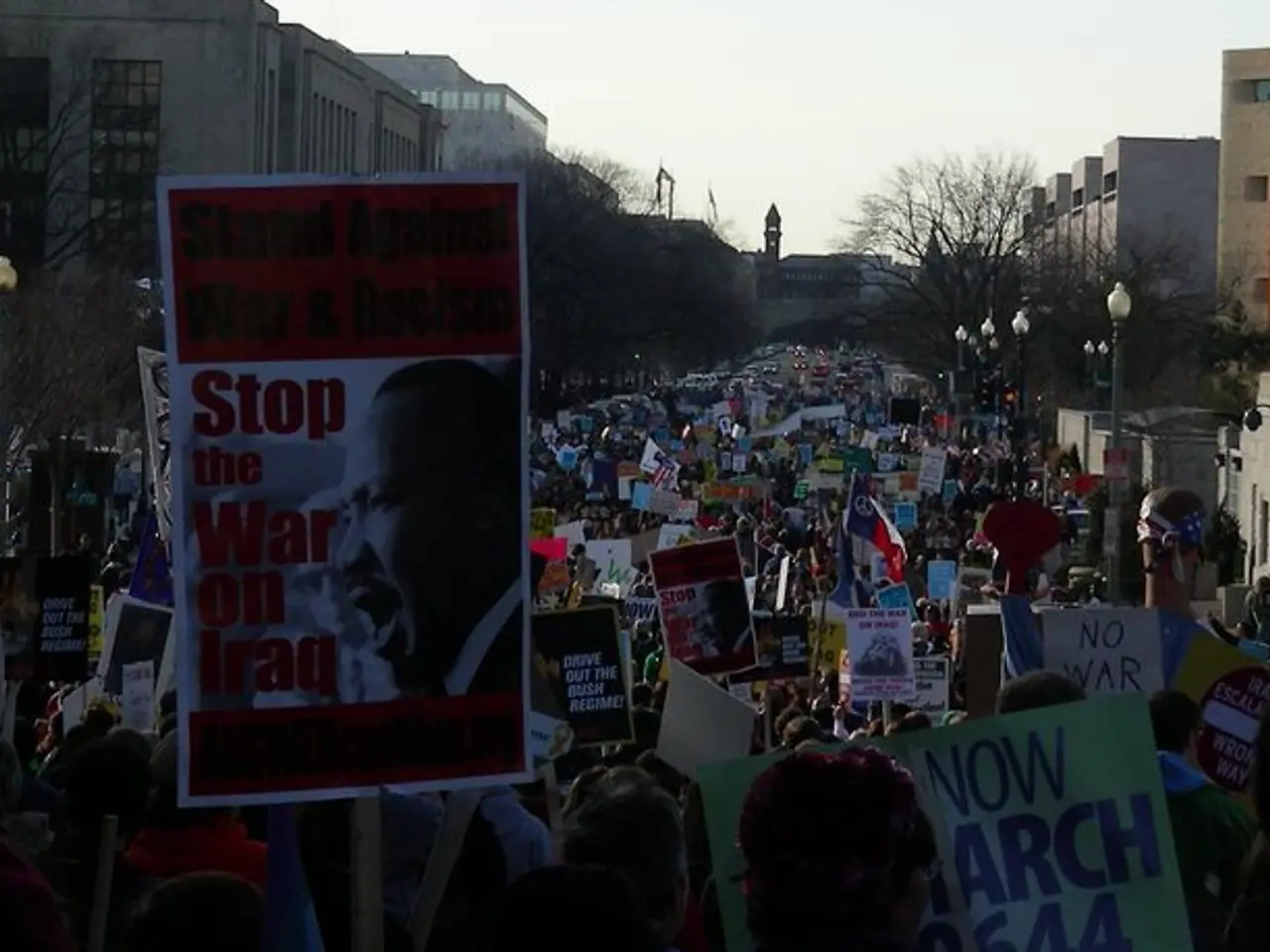Political enthusiasm is threating the foundations of democratic governance. Here's some suggestions on rectifying the issue.
In the modern political landscape, a concerning trend known as political fan culture is gaining prominence. This phenomenon, reminiscent of the passionate and tribal behavior observed in pop culture fandoms, is undermining political literacy, sustainable activism, and democratic processes.
Recent events have highlighted this issue. Macklemore, a popular musician, has faced questions about appropriation and his performative engagement with racial justice. His canonisation through his song 'Hinds Hall' has raised concerns about the oversimplified and one-sided narratives that drive political fandoms.
Political engagement in this context often involves rallying individual politicians who are seen as emblematic of certain values and struggles. This is evident in the mass mobilization around politicians, such as the fandom politics observed in South Korea. However, this engagement frequently centres more on intense loyalties and animosities, rather than on reasoned policy preferences. As a result, political actors become "captives" of their fan bases, fostering a political climate driven by affect and visibility rather than governance or policy effectiveness.
In the United States, political fan culture around figures like Trump and Elon Musk turns political engagement into a theatrical spectacle. This tribalism reinforced by fan culture can result in real-world harm, such as intimidation or violence towards political opponents or officials, creating a toxic environment for democracy to function healthily.
Moreover, political fan culture limits political literacy by promoting loyalty imperatives and discouraging critical engagement with complex policy issues. This dynamic reinforces political fragmentation and clientelism, where politicians focus on core, loyal factions rather than inclusive, policy-focused electoral appeals, weakening democratic alternation and accountability.
Charlotte Clymer, former press secretary for the Human Rights Campaign, and Gen Z researchers and journalists Chase DiBenedetto and Elena Cavender have all highlighted the pitfalls of performativity and the problems inherent in using one single issue as the sole basis to judge someone's worth and morality. They argue that debates over global conflicts should be focused on political stakeholders rather than celebrities.
The rise of political fan culture can be attributed to emotionally charged topics such as climate catastrophes, displacement, and socio-economic precarity. Many are now calling for boycotts and divestments, often seeing them as end goals rather than means activists have historically used to achieve concrete demands that can be turned into legislation.
Examples of politicians with cult-like followings include Ruth Bader Ginsburg, Donald Trump, Marjorie Taylor Greene, and Ron DeSantis. The Blockout movement, an online movement to block the social media accounts of celebrities and organisations related to their silence over the war in Gaza, has become a subject of debate.
In conclusion, political fan culture intensifies affective and identity-driven participation rather than reasoned civic engagement, encourages polarized tribalism and emotional loyalty over critical discourse, diminishes political literacy by prioritizing loyalty and spectacle, and contributes to fragmentation, clientelism, and challenges to democratic accountability. Such trends pose significant challenges to democratic processes by shifting political competition from policy debate to spectacle and fan mobilization, complicating efforts to sustain informed, substantive political participation.
Read also:
- Court petitions to reverse established decision on same-sex marriage legalization
- Commemoration of 200 Days of American Resurgence Unveiled
- Minister Bärbel Bas expresses doubts about her tenure as a minister following a recent interview during the summer.
- Politicians from both Republican and Democratic parties are urging President Trump to maintain the security agreement with Australia and the United Kingdom.








